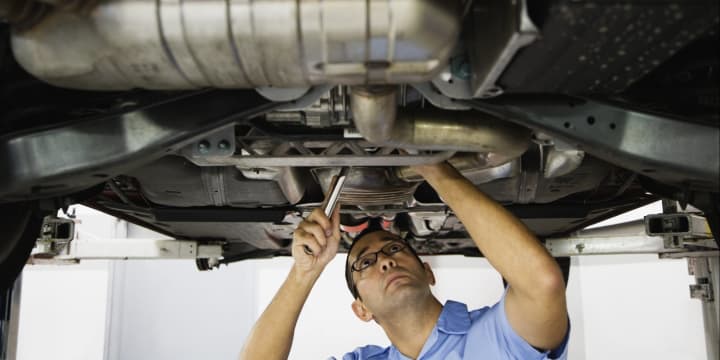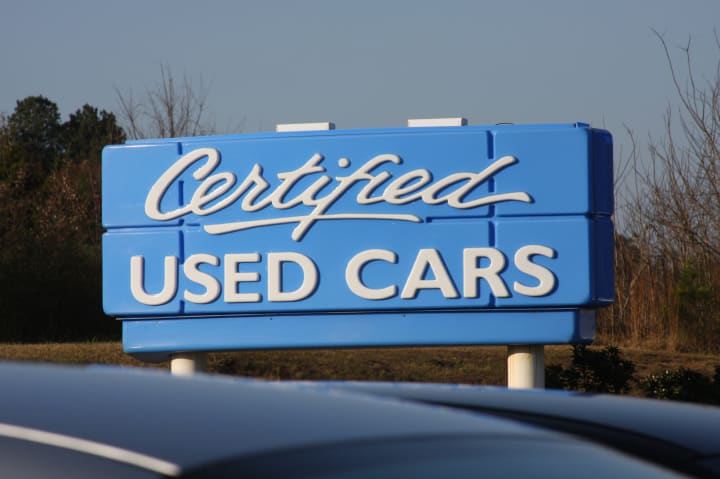Tips for Buying a Used Car
Want to make sure you don't drive away with a clunker? A mechanic offered me some pretty decent tips for buying a used car that you might want to know.

If you've been reading my work, then you already probably know that many of my friends are mechanics and car enthusiasts. It's a great life perk to have, primarily because you never have to worry about car problems or getting fleeced by a mechanic.
One of the best perks of having mechanic buddies, particularly a mechanic fiance, is that you get to know all the little things you need to know about cars to get the most bang for your buck.
When I went shopping for my current car, they all went in on advice. Here are the best tips for buying a used car that I've learned from my mechanic buddies — and a couple I learned from the internet.
Have a mechanic inspect any used car you want to buy, and make a point of running through a checklist.

All used cars will have problems, but it's up to you to figure out whether the issues are worth dealing with. An ideal used car will just have a very little amount of wear and tear. However, most used cars out there will have more than that.
My mechanic friends' tips for buying a used car is to look at what you are going to be getting before you sign anything. In an ideal world, you'll have a mechanic inspect it with you as you go to a dealership or head to the private seller's location.
However, not all people have a mechanic they can trust — and at times, it's just not feasible to have a guy follow you to the dealership or bring a car to the repair shop. So, here are some tips for buying a used car via solo inspection:
- Check under the hood. Are all the fluids topped off? Does the engine look clean, or is it covered in duct tape or rusted? Do the hoses feel hard, or are they soft, limp, and worn? Is the belt showing cracks? These things matter, because they can be indicative of heavy wear and impending repairs.
- Check the frame of the car, too. Make a point to check the car's frame for damage — both the internal and external frame. One of the most important tips for buying a used car I've ever heard was to run the moment you notice a "foxtrot" car or a car with frame damage of any sort. Cars that have frame damage are extremely dangerous and have already been in a serious accident.
- Look at the tires. Worn out tires often indicate that the car may not have been well-maintained. At the very least, the price of replacing those tires may be something you need to factor in.
- Actually try the air conditioner before you buy it. Nothing is quite as disappointing as buying a used car with no air condition in the middle of June. So, if you want to make sure it works, turn it on. Also, you might want to look at the radio, too.
- When inside, look at the odometer to find out the exact mileage. You also should check to ensure that the "Check Engine" light doesn't stay lit after you turn the car on. Some bad dealers might also alter that light's function, so if it never turns on at first, the car may have been tweaked to appear to be a better sale than it is.
- Check out the trunk and upholstery, too. A car's trunk can tell you how well the previous owner took care of the car. Besides, ripped upholstery isn't comfy upholstery.
- Also, you might just want to double check the car stats. Does it require diesel? Does it have a 1.4? How many cylinders are you looking at? All these things will matter when it comes to driving and maintenance.
Done inspecting the car? Good, these tips for buying a used car will help you determine if you're getting a good price on the car...
Here are some major tips for buying a used car that deal with avoiding a crucial mistake after you inspect the car.

A lot of the ugliest stuff that can happen when you're buying a used car deals with the background check of the car. After all, not all the details of a car can be found via a quick inspection. These are the paperwork-related tips for buying a used car my friends told me.
- Check the title before you sign. A salvage title is not a title that you should sign off on. If you're buying a car from a private seller, make sure that the name on the title is actually the name of the person you're talking to — and make sure the title is legitimately the actual title. No title means no sale.
- Oh, and CarFax isn't always legit. This was one of those tips for buying a used car that shocked me. The commercials were wrong! CarFax often misses out on a lot of accidents, especially when it comes to vintage cars.
- Double check the VIN number and do a background check. This is particularly important if you're buying from a private seller. You might find that the car in question was stolen, or that it had a lot more damage than you would have thought possible. If the seller won't let you check the VIN, you shouldn't buy the car.
Here's how to haggle like a mechanic.

Most mechanics I know prefer cars that are bought at auctions, primarily because they are cheaper and mechanics know how to fix them. However, they also know that I am no mechanic by any means. These are the tips they gave me on how to haggle like a mechanic...
- Get real about market value. Mechanics have a good upper hand on haggling for a used car, primarily because they know how much those cars are actually worth. By doing your research, bringing a mobile device to price check everything, and just getting a good amount of information on the car before you walk into a dealership, you're avoiding a lot of misinformation that could cause you to pay more than you should.
- Also get real about things like insurance costs and repair costs. If you notice a major issue with the car, you might want to consider how much extra you'll spend on repairs should you drive away. This will give you a logical, cost-based perspective in your negotiation. In many cases, it may not actually be worth haggling over the car at all.
- Focus on the price, not the payments. Many car salesmen will focus on the payments as a way to avoid lowering the price. Don't fall for it.
- Think about what the car salesman wants. Believe it or not, car salesmen don't just want a sale. Selling cars is a very cutthroat industry, and dealerships will fire someone who doesn't get good reviews or doesn't hit numbers. If you offer to sweeten the deal with a good review, an agreement to take the car to the dealership for repairs or praise the salesperson to their boss, they may be more willing to wiggle.
- Be stubborn and walk if they disrespect you. You need to remember that negotiations aren't a personal thing — but they do require professionalism. If they won't listen to your offer, or if they openly disrespect you, leave. This isn't someone to do business with.
About the Creator
Skunk Uzeki
Skunk Uzeki is an androgynous pothead and a hard partier. When they aren't drinking and causing trouble, they're writing articles about the fun times they have.






Comments
There are no comments for this story
Be the first to respond and start the conversation.